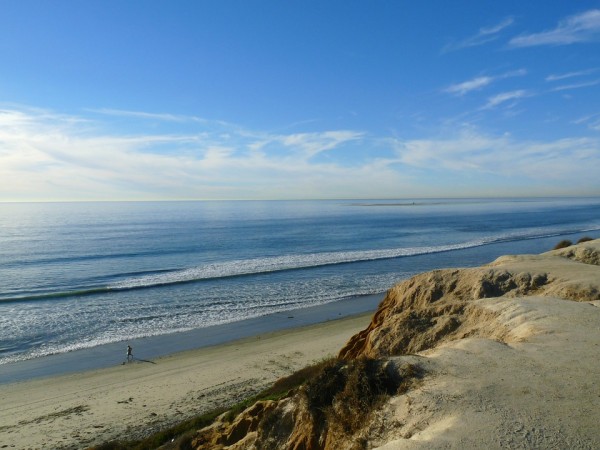By Ana Verayo, | April 21, 2016

Better weather in US but when will it last?
Researchers now reveal that those who are now enjoying the milder winters and summers in the United States, are also experiencing the effects of climate change in the continent, however, the effects will not last long.
Researchers from New York University say that 80 percent of Americans are now experiencing better weather compared to 40 years ago, with balmier winters and summers that not as humid and warmer. However, by the year 2100, some 88 percent of Americans will experience less comfortable weather as summers will become hotter at a faster rate than winters during this 21st century.
Like Us on Facebook
For this new study, researchers studied weather conditions beginning from 1974 to 2013, around the North American United States, excluding Alaska and Hawaii, where they also investigated projections towards the end of this century.
According to Patrick Egan from the New York University, those who are deeply concerned about climate change, these findings are disheartening. This means that Americans are given the wrong impression about the dangerous effects of climate change, which is this mild weather than can lead to larger consequences. Instead of demanding for a policy response to this issue, this daily weather can cause much apathy about this critical global problem.
Numerous studies already show that the effects of global warming and climate change include rising sea levels and temperatures, more droughts and heatwaves, more powerful hurricanes and erratic rainfall patterns, to faster glacial melt and sea ice loss.
However in the U.S., citizens only experience temperatures rising that are comparable to warmer days after winter. In January, daily maximum temperatures increased by 1.04 degrees Fahrenheit every 10 years. In July, daily maximum temperatures increased by 0.13 degrees Fahrenheit every decade, where humidity also fell slightly during summers since the mid 1990s, according to this study.
According to Megan Mullin of Duke University, there are also regions where large populations have not experienced improved conditions such as Massachusetts, Rhode Island and some parts of south California and Arizona.
Since temperate year round conditions are prevalent, the U.S. public may not get the message about what climate change is doing to a gradually warming planet, says Mullin. In order to capture the public's attention and concern, it can be more effective to talk about extreme events that can have more dangerous, serious effects on human health and the economy, she adds.
This new study is published in the journal Nature.
-
Use of Coronavirus Pandemic Drones Raises Privacy Concerns: Drones Spread Fear, Local Officials Say

-
Coronavirus Hampers The Delivery Of Lockheed Martin F-35 Stealth Fighters For 2020

-
Instagram Speeds Up Plans to Add Account Memorialization Feature Due to COVID-19 Deaths

-
NASA: Perseverance Plans to Bring 'Mars Rock' to Earth in 2031

-
600 Dead And 3,000 In The Hospital as Iranians Believed Drinking High-Concentrations of Alcohol Can Cure The Coronavirus

-
600 Dead And 3,000 In The Hospital as Iranians Believed Drinking High-Concentrations of Alcohol Can Cure The Coronavirus

-
COVID-19: Doctors, Nurses Use Virtual Reality to Learn New Skills in Treating Coronavirus Patients








